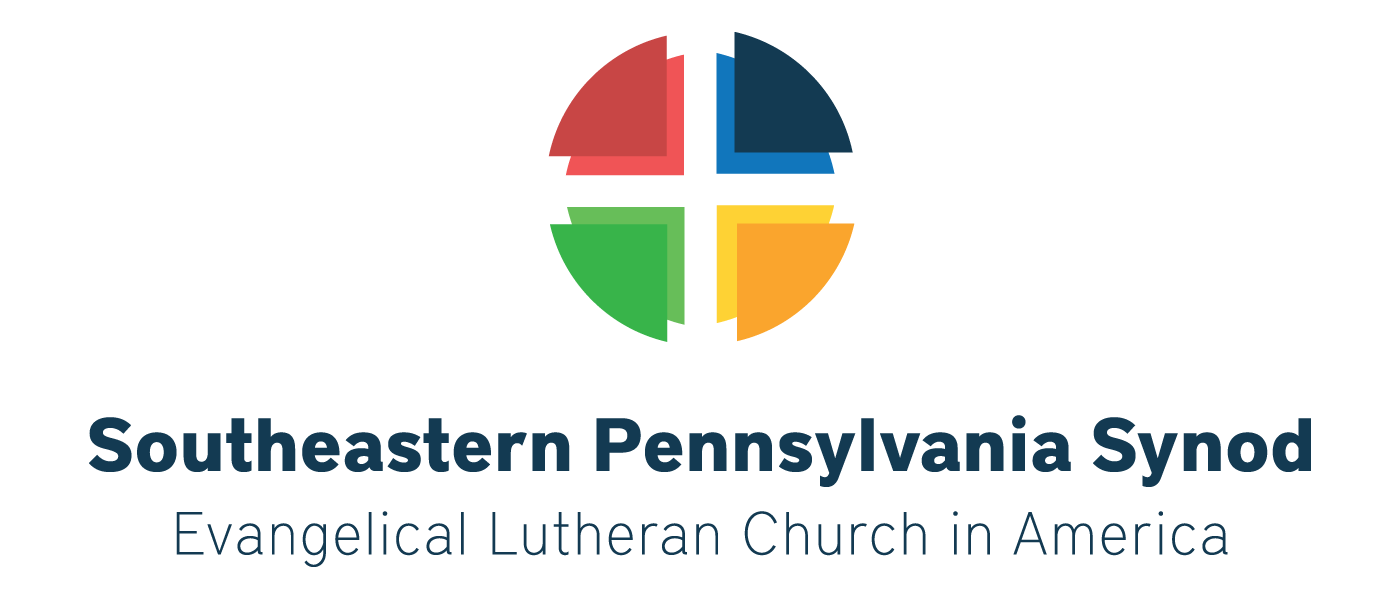January 23, 2019 in Bishop, Faith in action
A Civil Conversation on Race and Faith
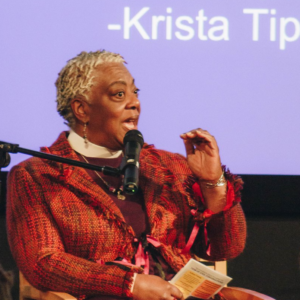
Bishop Patricia A. Davenport was one of five conversationalists who participated in Interfaith Philadelphia’s “Conversation on Race and Faith” at WHYY January 17.
The bishop joined the Rev. Steven Lawrence, president of NewCORE (A New Conversation on Race and Ethnicity), Rabbi David Strauss of Main Line Reform Temple, Sheikh Anwar Muhaimin of Masjid Quba, and the Rev. Bonnie Camarda, director of partnerships for the Salvation Army, in modeling listening to people with different experiences and having civil conversation about difficult issues.
“Should we be simply embarrassed or deeply troubled that, after thousands of years of language and trillions of dollars spent on media and communications technology, that we are losing the art of conversation?” asked Lawrence in his introduction. Noting that race and faith are “two topics that are banned from the Thanksgiving table,” he emphasized that the evening was “about conversation, not problems solving.”
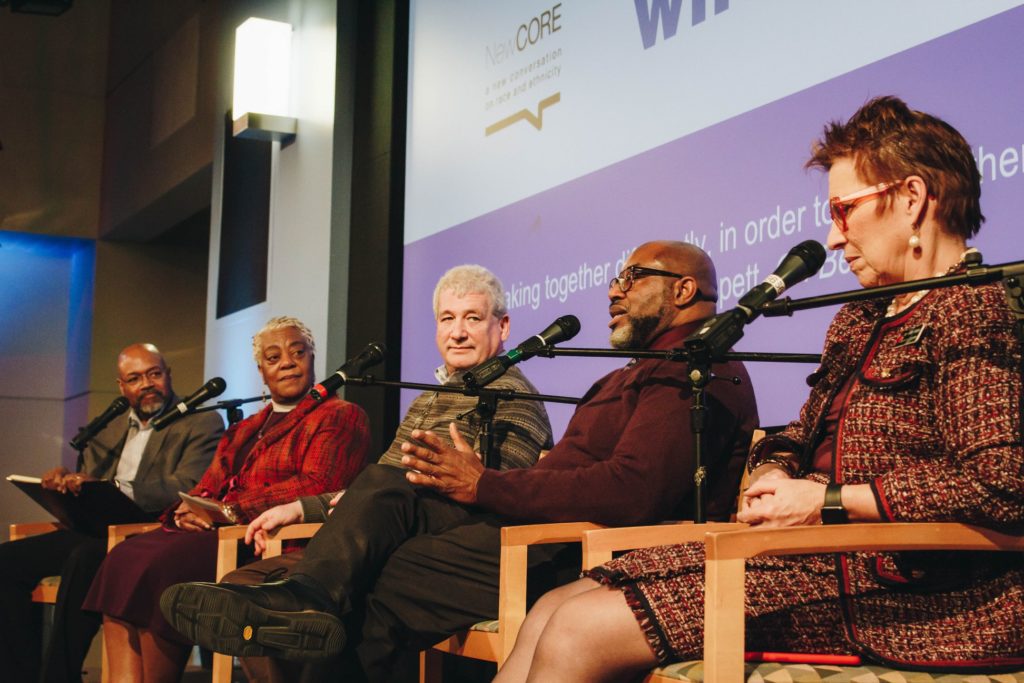
Reverend Lawrence, Bishop Davenport, Rabbi Strauss, and Pastor Camarda listen to Sheikh Muhaimin (second from right).
The conversation started out with each person describing how race and faith intersect in their lives.
“Here I sit as African-American woman elected a bishop in an evangelical Lutheran church that is 98% white,” Bishop Davenport said. Though not a cradle Lutheran, she has “been Lutheran longer than not” and identifies herself as “a child of the Most High God.”
“I happen to be a person of color who has chosen to live out her faith in a Lutheran expression,” she added. “My vocation, whether I am in the grocery store in jeans and a t-shirt, or if I am wearing what my daughter calls my uniform, is to share my faith.”
“I am a black guy who speaks Arabic very well,” Sheikh Muhaimin said. He was a sixth grader at Masterman School in Philadephia when the family moved to Saudi Arabia, where he learned that “kids in every culture are mean.” Demoted to first grade because he could not speak the language, Muhaimin went on to memorize the Quran by age 15.
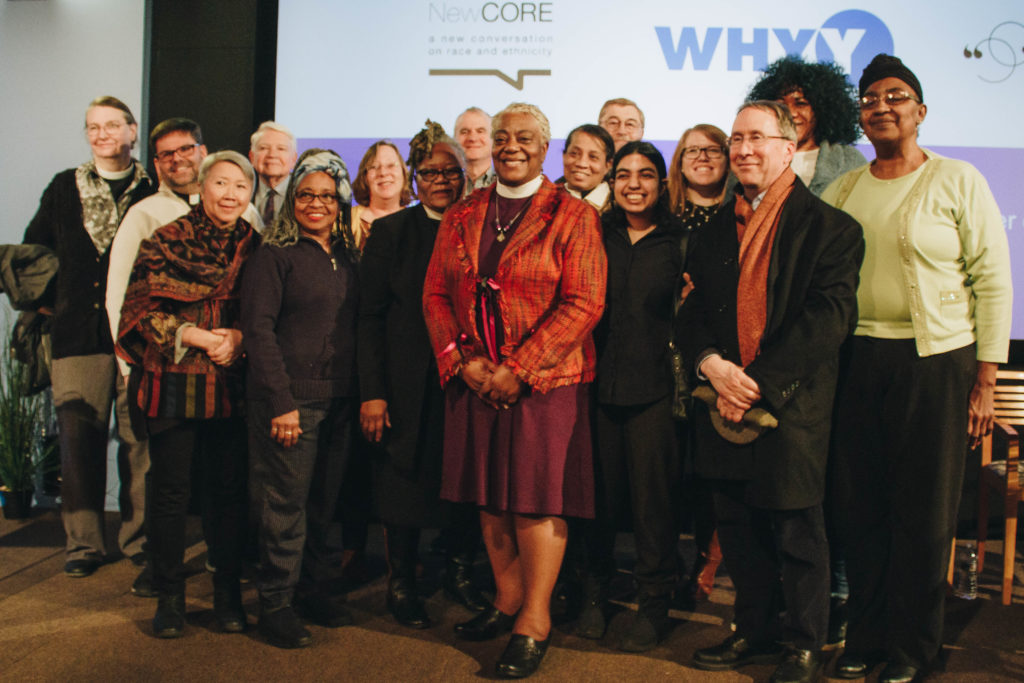
A number of Lutheran leaders attended the conversation.
“I am living proof of my predecessors’ prayers,” he said, noting that Jim Crow-era African American Muslims desired a religious leader who understood them. “The demarcation of ‘Black’ is limiting,” he said. “Black people are not a monolith. There are all types of ways to be black” in daily and religious life, he said.
Pastor Camarda echoed that statement, recalling a time in the 1980s when she served a church at Ninth and Hunting Park, and someone on the corner asked her, “Are you white?”
She answered: “I am white because my skin is white, but that is not who I am.” As a native of Cuba, she is distinct within the breadth of Hispanic culture. We share the same language, but we are not all the same, she said, even down to cuisine. She recalls serving her native rice and beans to visiting pastors from Argentina, who preferred pasta due to the Italian influence in their home country.
“I am acutely aware that I am white and I am a male,” observed Rabbi Strauss. There was a time “I would have said my primary identification is Jewish.” As the child and grandchild of German Jewish refugees, who grew up in a home where everyone had an accent, he has struggled with the question of “What does it mean to be white?”
“The Jewish community by and large is pretty uncomfortable with the conversation about white privilege,” he said. People will say, “’What do you mean white privilege, we are Jewish and we have been discriminated against?’ But when we came to America we made all of America our story, and you don’t get to pick and choose which part of that story you accept and which you want to reject.”
After listening in on the conversation among the religious leaders, the audience of about 200 broke into small groups to listen to each others’ stories.
The event was the first in a year-long series of activities in Interfaith Philadelphia’s Year of Civil Conversations, in conjunction with journalist Krista Tippett, host of public radio’s “On Being.” Several other conversations and training sessions for civil conversation facilitators round out the season, culminating in a live recording with Tippett and local Christian activist Shane Claiborne in April.
- Story by Bob Fisher. Photos courtesy Interfaith Philadelphia.
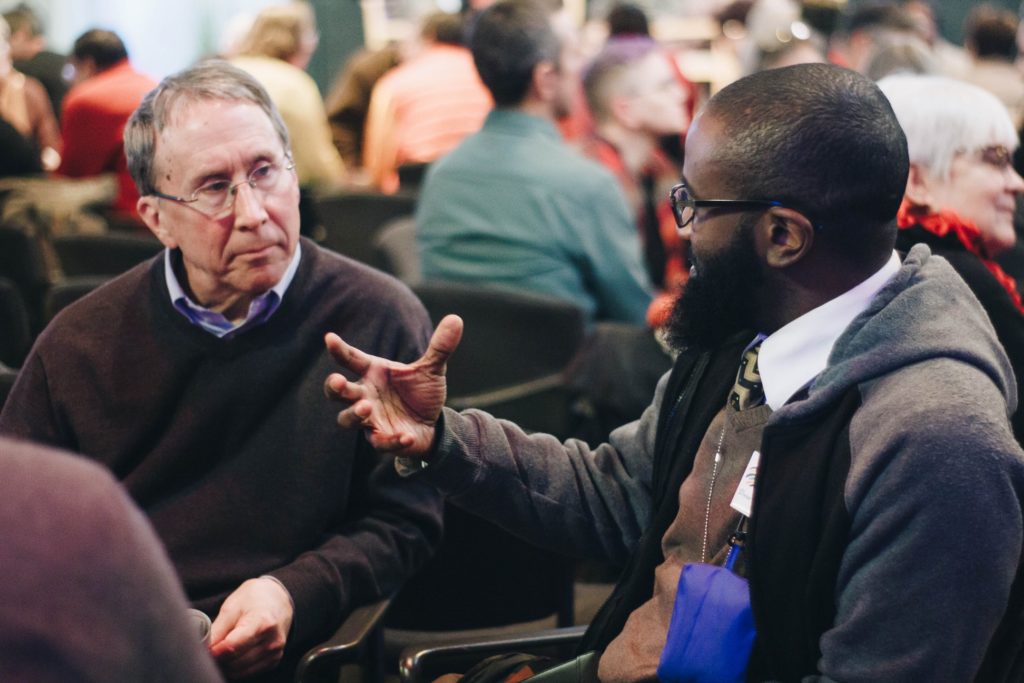
Pastor Stephen Keiser of Christ, Upper Darby, engaged in conversation.
